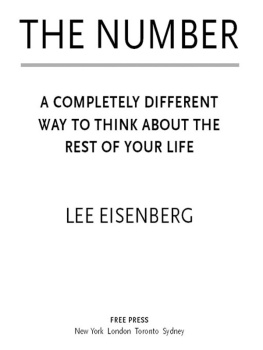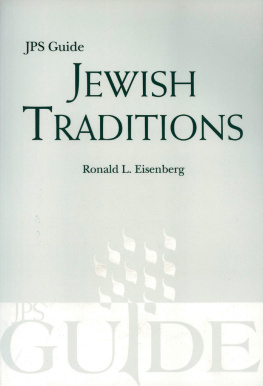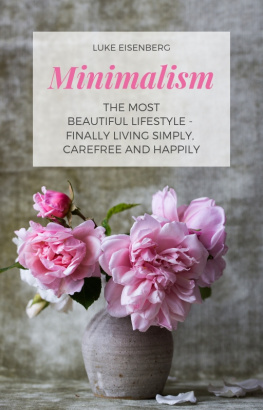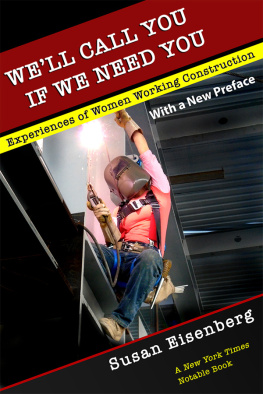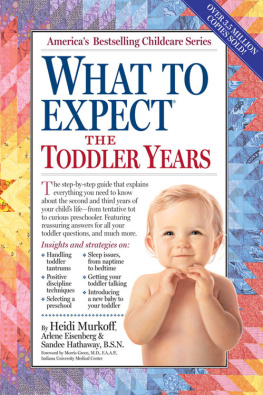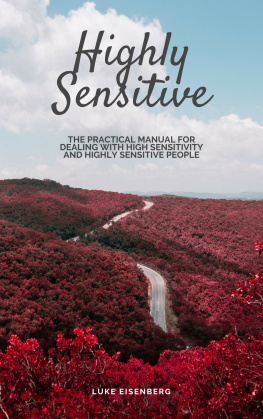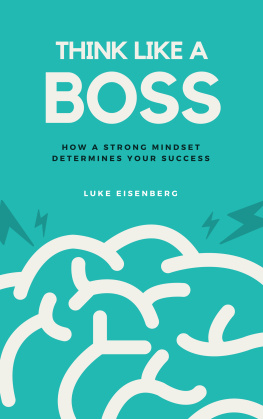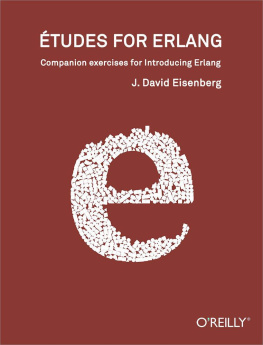Also by Lee Eisenberg
Breaking Eighty: A Journey Through the Nine Fairways of Hell
This book contains the opinions and ideas of its author. Neither the author nor the publisher is engaged in rendering investment, financial, accounting, legal, tax, insurance or other professional advice or services. If the reader requires such advice or services, a competent professional should be consulted. Both the author and publisher specifically disclaim any responsibility for any liability, loss or risk, personal or otherwise, which is incurred as a consequence, directly or indirectly, of the use and application of any of the contents of this book.

FREE PRESS
A Division of Simon & Schuster, Inc.
1230 Avenue of the Americas
New York, NY 10020
Copyright 2006 by Lee Eisenberg
All rights reserved,
including the right of reproduction
in whole or in part in any form.
FREE PRESS and colophon are trademarks of Simon & Schuster, Inc.
Designed by Helene Berinsky
Library of Congress Cataloging-in-Publication Data
Eisenberg, Lee, 1946
The number : a completely different way to think about the rest of your life / Lee Eisenberg.
p. cm.
Includes index.
1. Finance, Personal. 2. RetirementPlanning. 3. Quality of work life.
4. Quality of life. 5. LifestylesEconomic aspects. I. Title.
HG179.E387 2006
332.0240145dc22 2005051870
ISBN-13: 978-0-7432-8244-4
ISBN-10: 0-7432-8244-2
Visit us on the World Wide Web:
http://www.SimonSays.com
For Linda, Ned, and Katherine
the perfect investment
Contents
Part One
Chasing It
Part Two
Figuring It
Part Three
Finding It
I n the early spring of 2004, I ended a five-year stint at a job I never could have imagined, in a part of the world that was never part of the plan. The unexpected detour started with a phone call on a cold winter afternoon. At that moment I was half in, half out of the workplacedownshifting, as its called these days. My wife, Linda, our two young kids, and I were living a comfortable life in a pleasant New York suburb. A few days a week I worked on articles and a book. On the other days I hopped the Metro North line to Manhattan, where I had a consulting arrangement at Time Inc. My job there was to think up blue-sky projects for Time magazine. I spent my hours brainstorming ideas for special issues and new projects such as a newsweekly for grade school kids. But during those morning and evening commutes I secretly agonized over whether I had enough money socked away to be so casually employed.
I was worried about the Number.
The man on the phone was the vice chairman of Lands End, at the time a public company with revenues approaching two billion dollars. Lands End meant very little to me. Like many occasional customers, I viewed it as interchangeable with its archrival, L.L.Bean. Both sold sturdy preppy clothing, canvas tote bags, and goose-down everything else. But I did know that Lands End was admired for its folksy phone operators, who dispensed friendly service from a little town in the Midwest.
The vice chairman told me that Lands End had recently appointed a new CEO whose mandate was to bring new energy to the company. The Lands End catalogs, he said, needed more surprise and sizzle. The company wanted to revitalize the brand. He said the company was looking for a publishing type who could generate covers and features youd be more likely to find in national magazines than in clothing catalogs. Lands End wanted some fresh juice in its national advertising and someone to help advance its fledgling online business. All this would fall into my area, the vice chairman said, trying his best to set my chinos on fire. He wondered whether Id have even a remote interest in flying to Madison, Wisconsin, then trekking out to company headquarters in Dodgeville, a tiny hamlet some forty miles west of the capital.
Was he smoking prairie weed? The idea of me in the pajama game was surreal. The closest Id ever come to the garment trade was back when I edited Esquire. I was obliged to take regular trips to Paris and Milan, where I schmoozed menswear designers from Armani to Zegna. Esquire depended on the mens clothing industry for much of its advertising. Fashion pages were its commercial lifeblood. Nonetheless, I regarded these trips as delightful boondoggles, days of wine and risotto. Once back at the office, and until I longed again for a steamy bowl of brodetto, the menswear pages dropped to the bottom of my priority list. I didnt know a placket from a mitered yoke.
As for Wisconsin, had you shown me a map, put a pistol to my head, and asked me to identify the state, I would have straightaway pointed to Minnesota. To my astonishment, though, I found myself listening to the vice chairmans pitch with wary curiosity. He was an interesting guy whod once been a mover and shaker in the advertising business. I vaguely knew that in the 1980s hed left Madison Avenue to serve at the right hand of Lands Ends founder. Under his watch the company grew into a direct-marketing juggernaut. Lands End was solidly profitable. Thanks to an IPO and a consistently healthy balance sheet, the firm bestowed some big numbers on a handful of people, including the man on the phone. But it wasnt his net worth that mattered. It was how he chose to use the outsize Number hed acquired. He enjoyed a golden-age lifestyle most of us would die for, details of which I was to glean from others who knew the company from the inside.
The vice chairman grew up a working-class kid in Chicago. When he retired from active duty at Lands End, he and his wife restored a splendid farmhouse on a spectacular Vermont hillside. A chocolate Lab at his side, he was the picture-perfect gentleman farmer, favoring Lobb custom-made boots, French silk socks, and moleskin trousers. He lorded over a prizewinning herd of Belted Galloways, 1,300-pound bovines that are as close to designer cattle as cows may reasonably aspire to. He also had a passion for thoroughbreds, so he acquired a stake in a top-tier Kentucky racing stable. What did it take to pull all this off? Forty, sixty, a hundred million dollars? One can speculate. But it was plain that this man had more than enough acorns squirreled away up there in New England to indulge his luxurious enthusiasms for the rest of his days.
The same could hardly be said for my own long-term prospects, which is why, to my own surprise, I was already halfway hooked. Even as I put down the phone, I braced for the reaction of friends and family: Are you out of your mind? I thought about how I might possibly explain it. I could say that I was genetically encoded to go into the clothing business, citing an uncle who back in the fifties worked for a Seventh Avenue dress company and traveled the South with a trunkful of samples. But even a dumb-ass Wisconsin dairy cow was smart enough to figure out that any move to the heartland had nothing to do with a latent chromosomeand everything to do with money.
When I told my wife about the Lands End call, she put on her L.L.Bean barn coat and, without saying a word, took the dog for a walk. She was gone for so long I began to wonder if shed left me. Wisconsin? Why not Uzbekistan? Iceland? At the time we believed we had just settled down for the long term. And the reasons to stay put were overwhelming.
We were, first of all, well into the middle of middle age. I was fifty-two, my wife a few years younger. We had kids who were just seven and nine; we felt strongly that they should grow up rooted to a place. We had chosen the place after much torturous thought and planning.

